“For not by their own sword did they win the land, nor did their own arm save them, but your right hand and your arm, and the light of your face, for you delighted in them. You are my King, O God; ordain salvation for Jacob! Through you we push down our foes; through your name we tread down those who rise up against us. For not in my bow do I trust, nor can my sword save me, but you have saved us from our foes and have put to shame those who hate us. In God we have boasted continually, and we will give thanks to your name forever. Selah” (Psalm 44:3-8).
- ISRAEL AT 69.
Tuesday is Independence Day in Israel. Monday evening, as Memorial Day comes to an end, citizens around the nation will turn out to begin celebration of 69 years of the miracle which is still going on—a people scattered for almost 2000 years, not only gathered back, but granted sovereignty over the Land promised to them forever by the God of their forefathers. As we were reminded in Jeremiah 31:35-36 last week, the continuing presence of “the sun for light by day and the fixed order of the moon and stars for light by night” is witness that “the seed of Israel” has never ceased from being a nation before the LORD. And now that goy gadol—that “great nation” (Genesis 12:2) promised to Abraham—continues to return and become established in the Land.
Friday’s Jerusalem Post citing a report from the Central Bureau of Statistics, made some comparisons between the Jewish State at its birth, and what she is today:
* Today the population of Israel stands at 8.68 million. Of this number 6.484 million residents are Jewish, 1.808 million are Arab.
* In 1948, there were 11.5 million Jews in the world, of whom 6% were living in Israel. In 2015 there were 14.411 million Jews in the world, 43% of whom live in Israel. Soon the country will reach the point where the majority of the world’s Jews live in Israel.
* This past year 174,000 babies were born in Israel; 44,000 deaths were reported.
* This past year some 30,000 new immigrants arrived in Israel.
* Today ¾ of Israel’s Jewish population are Sabras (born in Israel)—more than double the percentage in 1948.
* In 1948 Israel had only one city—Tel Aviv—with more than 100,000 residents. Today, 14 cities have populations exceeding that number, with eight having more than 200,000 residents.
* In 1955 Israel faced a 7.2% unemployment; in 1916 unemployment stood at 4.8%.
(“On 69th birthday, Israel at 8.68 million”:The Jerusalem Post, 28 April 2017)
This past Thursday (April 27th ) was Rosh Chodesh, the first day of the second Hebrew month, Iyar. This month (using the ancient Canaanite name Ziv) is mentioned specifically in I Kings 6:1, 37 as the time when King Solomon “began to build the house of the LORD” and “the foundation was laid.” And it was on the fifth of Iyar in 1948 that the “foundation” for the modern state of Israel was laid, with David Ben Gurion reading out the new Declaration of Independence, concluding:
ACCORDINGLY, WE, the members of the National Council, representing the Jewish people in Palestine and the Zionist movement of the world, met together in solemn assembly today, the day of the termination of the British mandate for Palestine, by virtue of the natural and historic right of the Jewish people and the Resolution of the General Assembly of the United Nations, HEREBY PROCLAIM the establishment of the Jewish State in Palestine, to be called
ISRAEL.
That day 69 years later is what is celebrated this Tuesday May 2nd.
It is preceded by a 24 hour period of memorial for the 23,554 who have fallen in Israel’s wars and at the hands of terrorism. On Sunday evening, sirens sounded for a minute throughout the nation, and at 11:00 a.m. on Monday.
As Yom Ha’Zikharon, the Day of Remembrance, draws to an end, Jews in Israel will turn out to celebrate Yom Ha’Atzma’ut—“Independence Day”, and modern Israel’s 69th BIRTHDAY. There will be revelry in the streets, food, fireworks, and a holiday on Tuesday.
PLEASE PRAY:
*Grace from the God of all Comfort (II Corinthians 1:3) upon those who have been bereaved. Pray for revelation that He is also a God of Hope who loves them and has a Future and a Hope.
*Thanksgiving that God has brought His ancient people back into their land of heritage according to His Word, and established and prospered them in that Land for 69 years.
*Protection for Israeli Jews during this day of celebration.
*Many Arabs in Israel and the contested territories commemorate the day of Israel’s becoming a nation on the Gregorian date of 15 May, calling it Nakba—“Catastrophe”. Please pray for Muslim Arabs to come to Salvation in Yasuah (Jesus)—and for God to grant them His council, wisdom and peace regarding His purposes for both Jews and Arabs in His Land. Pray for racism to be broken down in Israel.
*That all “foundations” which need to be laid in Israel during this month—in our government, in relations with our allies, within the Body of Messiah—be accomplished. “For no other foundation can anyone lay than that which is laid, which is Yeshua the Messiah!” (I Corinthians 3:11).
*That members of the still very young Israeli Body of Messiah, both Jew and Arab, be maturing and being prepared as ministers of the Holy Spirit in the Land. Daniel 12:1-3 tells of a coming “time of trouble” for Israel “such as never has been since there was a nation [1948?] til that time.” We are not to draw back in fear as that time approaches—but it is important that the Body be being made ready now. It will be a time when “those who know their God shall be strong and take action, and those with insight will instruct many” (Daniel 11:32-33); a time when “those with insight”and “those who turn many to righteousness” will shine like stars in the darkness (12:3).
THIS WEEK’S TORAH PORTION:
From ancient times there has been a weekly portion (Parashah) from the first five books of Moses (The Torah) and an ending (Haftarah) from the Prophets read on the Sabbath in synagogues around the world. This portion is given a Hebrew name drawn from the opening words of the Torah passage. An illustration of this practice appears to have been recorded in Luke 4:16 where Yeshua (Jesus) arrived in the synagogue in Nazareth and was asked to read the portion (Isaiah 61) from the Prophets. We have found that in perusing these weekly readings, not only are we provided opportunity to identify in the context of God’s Word with millions of Jewish people around the world, but very often the Holy Spirit will illumine specific passages pertinent that week in our intercession for the Land and people of Israel. The Haftarah, unless otherwise noted, will be that read in Ashkenazy synagogues around the world. The references for all texts are those found in English translations of the Scriptures.
The Parashah for this week 30 April—6 May 2017 is again a “double reading”:
- Acharei Mot—“After the Death”
TORAH: Leviticus 16:1—18:30
* HAFTARAH: Ezekiel 22:1-19
- Kedoshim—“Holy Ones”
TORAH: Leviticus 19:1—20:27
HAFTARAH: Amos 9:7-1
* ON weeks in which a “double readings” occurs, only the Haftarah of the second reading is generally used.
*Leviticus 16:21-22. “Aaron shall lay both his hands on the head of the live goat, confess over it all the iniquities of the children of Israel, and all their transgressions, concerning all their sins, putting them on the head of the goat, and shall send it away into the wilderness…The goat shall bear on itself all their iniquities to an uninhabited land; and he shall release the goat in the wilderness.”
This portion begins with instructions for the most holy day of the year, Yom Kippur—“Day of Atonement”. A goat was sacrificed and its blood applied to the Mercy Seat as atonement for the sins of the people. In some English translations of Leviticus 16:15, this is referred to as the “goat of the sin offering.” The more literal rendering of the Hebrew would be “the sin goat” or “the goat of sin”—which is slain to cleanse the people and make them clean. II Corinthians 5:21 reads of the Messiah Yeshua, “He made him who knew no sin to be sin on our behalf, that we might become the righteousness of God in Him”. While the blood of this goat made atonement for sin, a second “scapegoat” bore the sins of the people away into the desert. Psalm 103:12 tells us that “as far as the east is from the west, so far has He removed our transgressions from us”. The Hebrew expression for “scapegoat” Azazel has come today to be used as a common curse in Israel. PLEASE PRAY: for revelation that Yeshua (Whose name means,“The LORD is Salvation”) is the “Lamb of God” who became a ‘curse’ for us, making atonement in His blood and bearing away the sin of the world (John 1:29).
*Leviticus 17:11. “For the life of the flesh is in the blood, and I have given it to you upon the altar to make atonement for your souls; for it is the blood that makes atonement for the soul.”
The word translated “life” here is not chaim, the word normally used, but nephesh which is usually translated “soul” (See Genesis 2:7: “And the LORD God formed man of the dust of the ground, and breathed into his nostrils the breath of life (“chaim”); and man became a living soul (“nephesh”).” We are not here suggesting that the “soul” of man’s being is centered in his blood—but the life-factor of his physical body is, as is that of animals. “Behold, all souls are Mine; the soul of the father as well as the soul of the son is Mine; the soul who sins shall die.” (Ezekiel 18:4). Because death reigns in all human-kind (for all have sinned), God has chosen that this death be atoned for by life-blood which “sustains the soul” (vs 14:b). Nor was the blood, with its special value as life-force or atonement, to be treated carelessly or indiscriminately. Atonement required a mediator-priest, so blood wasn’t to be shed at home for that purpose by one’s self (vss. 1-6); nor was that which redeems the soul to be used as physical food to sustain the body (vss. 10 & 14—see also Genesis 9:4 and Acts 15:20).
*Leviticus 17:7. “They [i.e. “All the children of Israel”] shall no more offer their sacrifices to demons, after whom they have played the harlot.”
“Demons” here is not the usual sheddim—but instead, it is actually the same word translated “goats” in the observance of Yom Kippur in 16:8. Satan not only comes as an “angel of light”—but among the pagan peoples sought worship in the form of the same animal which would be used as a symbol to pay for and to bear away sin.
*Leviticus 17:13-14. “Whatever man of the children of Israel, or of the strangers who dwell among you, who hunts and catches any animal or bird that may be eaten, he shall pour out its blood and cover it with dust; for it is the life (“nephesh”) of all flesh. Its blood sustains its life (“nephesh”).”
The practice of sh’chita—the slaying of an animal for food in accordance with certain stipulations which include bleeding it—is still practiced in Jewish (and some Islamic) communities today. Although historically considered humane, it is presently coming under fire in a number of countries, which contest this and in some cases have succeeded in forbidding it. It is troubling to see how in several western countries over the past four or five years both sh’chita and another Jewish religious tradition brit milah—the “covenant of circumcision” have been coming under increased criticism and in some cases legislation to be banned on the basis of alleged violation of “rights” (of the animal or the baby boy). A little over a year ago Denmark banned Jewish ritual slaughter on the grounds of animals’ rights—this, while being not only one of a few NATO countries which continue to practice vivisection, but also a country which has legalized bestiality, a practice which of course has nothing to do with the rights of the animal (“Jewish groups excoriate Denmark over legalized bestiality”: JPOST.com, 6 April 2014 12:51 IST). Both the blessing for Israel of sh’chita and the forbidding of this abominable perversion are dealt with in this week’s Torah Portion (Leviticus 17:13; 18:23).
*Leviticus 18:21. “And you shall not let any of your descendants pass through the fire to Molech, nor shall you profane the name of your God: I am YHVH.”
The name molech is actually the singular present tense of the verb Limloch—“To Reign” (“king” is the noun form melech). As the name Baal is really the word for “lord-master-husband”, but taken by an evil demonic deity which presumed its right to be called such by those held under its deception, Molech was a demonic monarch which assumed the title “The One Who Reigns”. Sadly, Israel would eventually embrace this power (Jeremiah 32:35) and come under God’s severe judgment. Because of a strong revulsion against this sin, Hebrew worship songs today, both amongst Orthodox Jews and most Messianics do not make use of this present-tense form of the verb “to reign” when referring to deity, substituting instead malach (He reigned) or yimloch (He will reign), melech (He is King).
*Leviticus 18:3,4. “According to the doings of the land of Egypt, where you dwelt, you shall not do; and according to the doings of the land of Canaan, where I am bringing you, you shall not do; nor shall you walk in their ordinances. You shall observe My judgments and keep My ordinances, to walk in them: I am YHVH your God. You shall therefore guard My statutes and My judgments, which if an “adam” does, he shall live by them. I am YHVH. Leviticus 20:22. You shall therefore keep all My statutes and all my judgments, and perform them, that the land where I am bringing you to dwell may not spew you out.”
Between these verses are enumerated a wide array of practices related to idolatry, sexuality and occult activity which although prevalent in Egypt or Canaan, were forbidden to the Israelites. Whether or not it may have been to some degree permitted in earlier days, sexual relations (marriage) with near blood relatives was no longer allowed for Israel. Indeed, here there is clarification as to whom “nakedness” belongs, and this was not to be violated. Certain sexual acts are labeled “wickedness” (18:17), others “abomination” (18:22) or “perversion” (18:23). Israel was warned that indulgence in these practices had resulted in pollution of the very land itself, and the previous inhabitants being spat out of that land. Eventually (See the usual Haftarah portion from Ezekiel 22:1-16) indulgence in these would bring about the expulsion of Israel herself. PLEASE PRAY: for conviction of sin and for repentance leading to revival in Israel. Many of the same abominations mentioned in this passage are prevalent in our Land today. God’s law regarding such behavior has not changed…nor the judgments He has ordained regarding those who embrace it. If we are to become rooted soundly in the land and remain, their practice must be seen as sin, confessed and put aside.
*Levitucus 19:1-2. “YHWH spoke to Moshe, saying: ‘Speak to the entire community of the Children of Israel, and say to them: “Holy are you to be, for holy am I, YHWH your God!”’” (Everett Fox Trans.).
As Everett Fox points out in the commentary to his translation, “As the key chapter of this part of Leviticus, Chap. 19 is wide-ranging and rhetorically powerful. It extends holiness to virtually all areas of life—family, calendar, cult, business, civil and criminal law, social relations, and sexuality. Most (but not all) of the laws deal with what we would term ethics, that is, relations between people…As such, they have become an exemplar and a cornerstone, at least in idealized form, in Western thinking about these issues.”
For Chapter 20, “We move now into laws dealing with some of the more serious offenses against God in the biblical view: idolatry (Including worship of the “Molekh” and consulting spirits), insulting parents, adultery, and sexual crimes. These are distinguished from the previous chapter by the inclusion of punishments; their seriousness is indicated by their capital nature.” (Fox, Everett: The Five Books of Moses…©1995, Shocken Books, New York).
*Leviticus 19:3 (Fox Translation). “Each-man—his mother and his father you are to hold-in-awe, and my Sabbaths you are to keep: I am YHWH your God!” (Everett Fox Trans.).
The first specific directive in this chapter (regarding the initial call to holiness) combines the reverent respect for one’s parents with that of the first thing ever recorded as being “holy”—the Sabbath (“Then Elohim blessed the seventh day and sanctified it [i.e. made it holy, VaYekadesh], because in it He rested from all His work which Elohim had created and made.”—Genesis 2:3). The phrases “I am YHWH!” or “I am YHWH your God!” are used at least 15 times in this chapter. YHWH (The exact pronunciation is today uncertain, some scholars think Yehovah, others Ya’hweh) is different than all the other gods served by the inhabitants of the lands Israel would be entering. As He is different, so the life-styles of His followers must be different! He is YHWH. The very power of that NAME released with His directives would provide sufficient grace and authority for those who would be willing to obey.
*Leviticus 19:17-18. “You shall not hate your brother in your heart. You shall surely rebuke your neighbor, and not bear sin because of him. You shall not take vengeance, nor bear any grudge against the children of Your people, but you shall love your neighbor as yourself; I am YHVH.”
Yeshua would equate this command to “love one’s neighbor as one’s self” with the First Commandment, to “Love YHVH our God with all our hearts, souls and minds” (Matthew 22:39). In the New Covenant, John would teach further that
“He who says he is in the light, and hates his brother, is in darkness until now. He who loves his brother abides in the light, and there is no cause for stumbling in him. But he who hates his brother is in darkness and walks in darkness, and does not know where he is going, because the darkness has blinded his eyes”
(I John 2:9-11).
*Leviticus 19:32. “You shall rise before the gray headed and honor the presence of an old man, and fear your God: I am the LORD.”
The first part of this verse, Mifnei seva takum!— “Before the aged, arise!” is today posted on little signs over the first seats behind the driver on public buses in Jerusalem (see above)! PLEASE PRAY for the aged in Israel—that they will draw near to their God. Pray for the younger, that there will be a renewal of respect and honour for age in the Land—with the realization that this is linked to the “Fear of God” and honouring the Name of the LORD.
” src=”cid:[email protected]″ alt=”IMG_0722″ class=”Apple-web-attachment Singleton”>
*Leviticus 20:7-8. “Consecrate yourselves therefore, and be holy, for I am YHVH your God. And you shall keep My statutes, and perform them: I am YHVH who sanctifies you.”
The words “consecrate”, “holy” and “sanctifies” in this passage all have within them the root of the Hebrew word kadosh. Here we have man’s responsibility in “setting himself apart”—by guarding and walking in God’s directives—but we also see that becoming truly Holy will ultimately require a work of the LORD Himself!
*Amos 9:11. “In that day I will raise up the fallen sukka [hut, temporary shelter, tent, tabernacle] of David, and wall up its breaches; I will also raise up its ruins and rebuild it as in the days of old.”
Zechariah 12:10 makes clear that a day of grace for conviction and repentance is coming to the “House of David”. Ezekiel 34:23-30 and 37:22-28 prophecy that in latter days a united kingdom of Israel under David will be restored. He built his first palace on Mount Zion, just south and below Mount Moria where his son Solomon would build the First Temple. David was first and last a worshipper “in Spirit and in truth”. He brought the Ark of the Covenant to Jerusalem, placed it in a temporary dwelling, and stationed worshippers around it ministering to the LORD for some 32 years. In this, we see the phenomenon of the Holy Spirit’s raising up of places of continual worship and intercession in Israel and around the world as an “earnest of,” a “prelude to,” the ultimate fulfillment of the Amos 9:11 prophecy—which will be a blessing to Israel and all of the World.
Please pray that God’s “Kingdom Come!” over this ancient location, the City of David just south of and below the Temple Mount, where David built his first palace and erected the tent for the Ark. The area is currently home to both a Muslim Arab and an Orthodox Jewish population. Pray for God’s righteousness and justice, His wisdom, courage, compassion and timing over Israel’s Prime Minister Netanyahu and Jerusalem Mayor Nir Birkat, who continue to face decisions of great import regarding this area. Pray for the Arabs and Orthodox Jews who are hostile neighbors on this tiny strip of land…that a Light would shine in their darkness—a revelation of the Son of David who is also the Son of God, who came once as a Man into this world, and who will one day return to rule. Pray that corporate praise, worship and intercession as modelled by David will continue to be established and grow in Israel and around the world, nourished by the Holy Spirit of Truth.
Martin & Norma Sarvis
Jerusalem
[The Torah and Haftarah portions for next week 7-13 May 2017 is called Emor—“Say!” TORAH: Leviticus 21:1—24:23; HAFTARAH: Ezekiel 44:15-31]

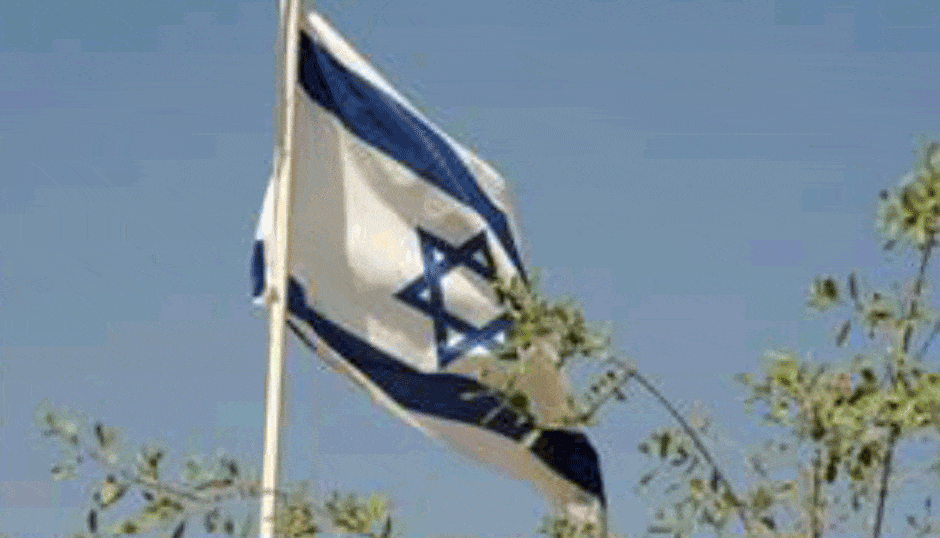
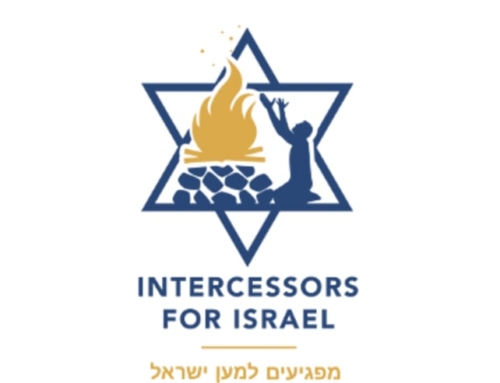
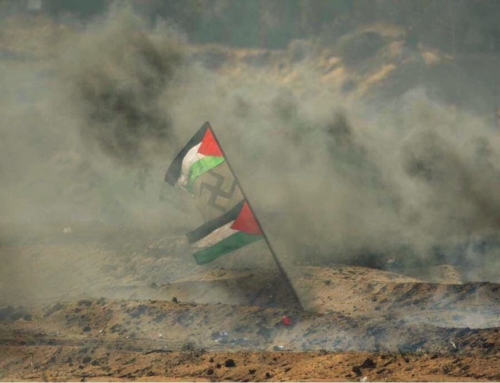
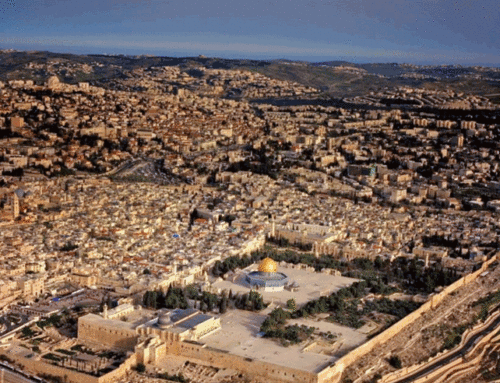
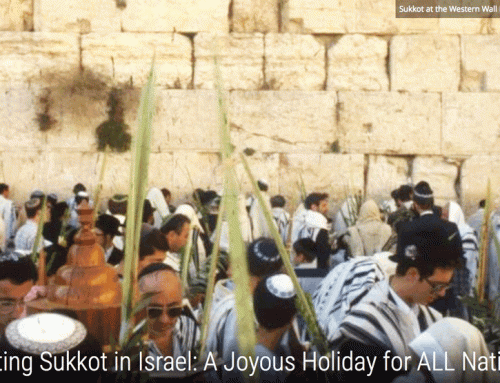
Leave A Comment